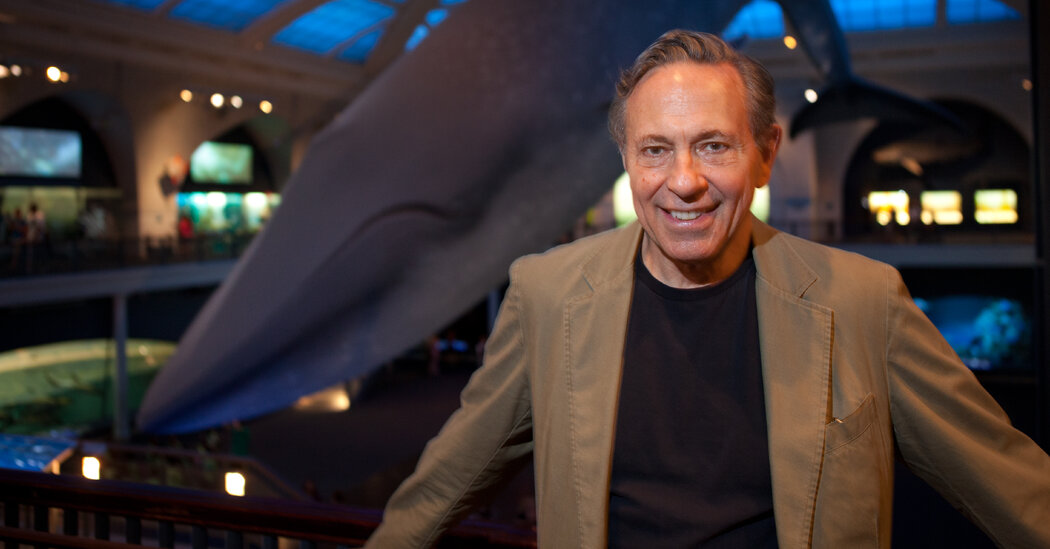His prodigious paintings of whales and his books about sharks, giant squid and tuna were acclaimed for melding science with art.
Richard Ellis, a polymath of marine life whose paintings, books and museum installations — especially the life-size blue whale at the American Museum of Natural History in New York — revealed the beauty and wonders of the ocean, died on May 21 in Norwood, N.J. He was 86.
His daughter, Elizabeth Ellis, said the cause of his death, at an assisted living facility, was cardiac arrest.
Mr. Ellis had no formal training in marine biology, conservation, painting or writing. But in fusing his artistic flair with an encyclopedic knowledge of ocean creatures, he became an invaluable, sui generis figure to conservationists, educators and those curious about sea life.
“Richard was an enthusiast, and he absolutely adored the natural world, especially the sea,” said Ellen V. Futter, the former president of the natural history museum, where Mr. Ellis was a research associate for many years. “He wanted everybody to share his appreciation and joy from the beauty of it, but also to feel the same sense of responsibility to protect it.”
Mr. Ellis spent much of his life traveling to exotic locales, where he bobbed around on boats and went diving in search of giant squid, great white sharks and other fantastical, elusive deep-sea creatures.
“If people understood the life, the importance, the habits of these creatures — whether sharks or whales or manatees — they would acquire a reverence,” Mr. Ellis told The New York Times in 2012. “I do it so people will say, ‘Wow, I didn’t know that’ or ‘Isn’t that cool! Look at what octopuses can do!’”
